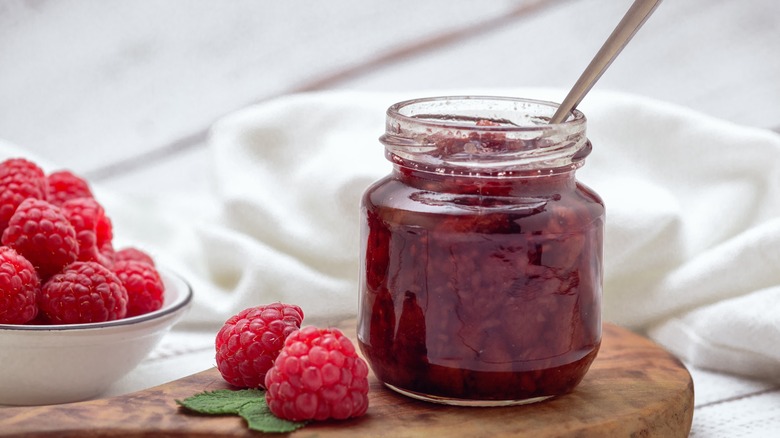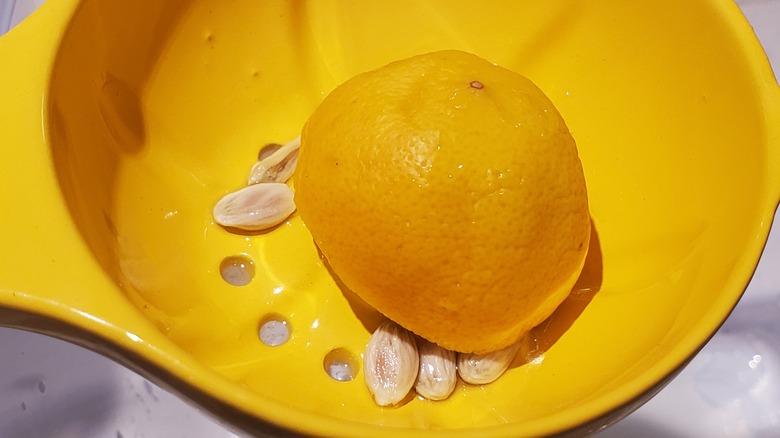Stop Tossing Lemon Seeds And Use Them To Thicken Homemade Jam
There's no tastier way to make seasonal fruits last than to turn them into homemade jam. The standard formula for classic, uncomplicated fruit jam consists of fruit, sugar, and lemon juice. However, the juice isn't the only part of the lemon that'll serve you. Lemon seeds can be key in thickening homemade jam.
Lemon seeds harbor pectin, which most commercial jams use as a thickening agent. Pectin is a compound that is the plant-based equivalent of gelatin. For pectin to work, it needs to be combined with sugar and acid, then heated. Since most jam recipes call for heating sugar, fruit, and lemon juice, pectin activation is guaranteed.
Citrus fruits like lemons and limes are especially high in pectin content; pectin is found in their peels and seeds. It's especially easy to extract pure pectin from lemon or lime seeds. One way is to immerse them in water overnight. You'll notice that the seeds have secreted a clear gel substance that you can isolate by straining the water out. Simply add the pectin gel to your fruit, sugar, and lemon juice over the stove as it bubbles. If you don't have time to soak the seeds, you can extract their pectin by placing a handful of seeds inside a porous pouch and boiling them along with your jam ingredients. The pectin will seep out of the pouch and infuse the jam with gel.
Pectin in jam and other fruit
The great thing about this hack is that old and new lemon seeds work equally well, so you can freeze lemon seeds you don't use during the year in anticipation of jam season. You can also freeze homemade pectin for up to six months. Other parts of the citrus fruit can also make pectin gel. Boiling citrus peels and citrus juice in water, then straining and reducing the infusion creates plenty of pectin that you can store in the fridge for up to a week for an upcoming jam. However, lemon peel pectin is a lot more bitter, making lemon seed pectin the ideal option for a neutral thickener.
Unlike the types of pectin commercially made for grocery stores, home-extracted pectin tends to be much less concentrated, so you have more room to experiment with ratios. Adding too much pectin will turn jam disappointingly tough or hard in consistency. So, you should do some research into pectin levels in fruit. Jams made with high-pectin fruits, like apples, may not need additional pectin other than a squeeze of lemon juice. But some low-pectin fruit jams that would benefit from lemon-seed pectin include strawberry, raspberry, and apricot. Recipes recommend using ¼ cup of lemon-seed pectin per 1 cup of low-pectin fruit.

